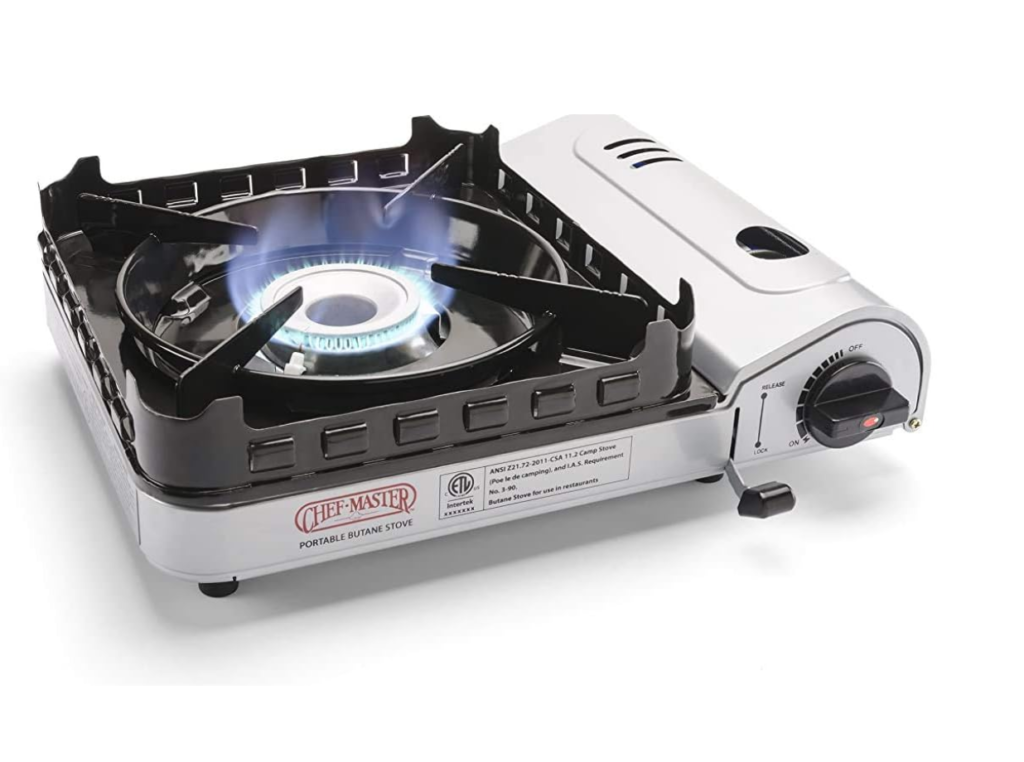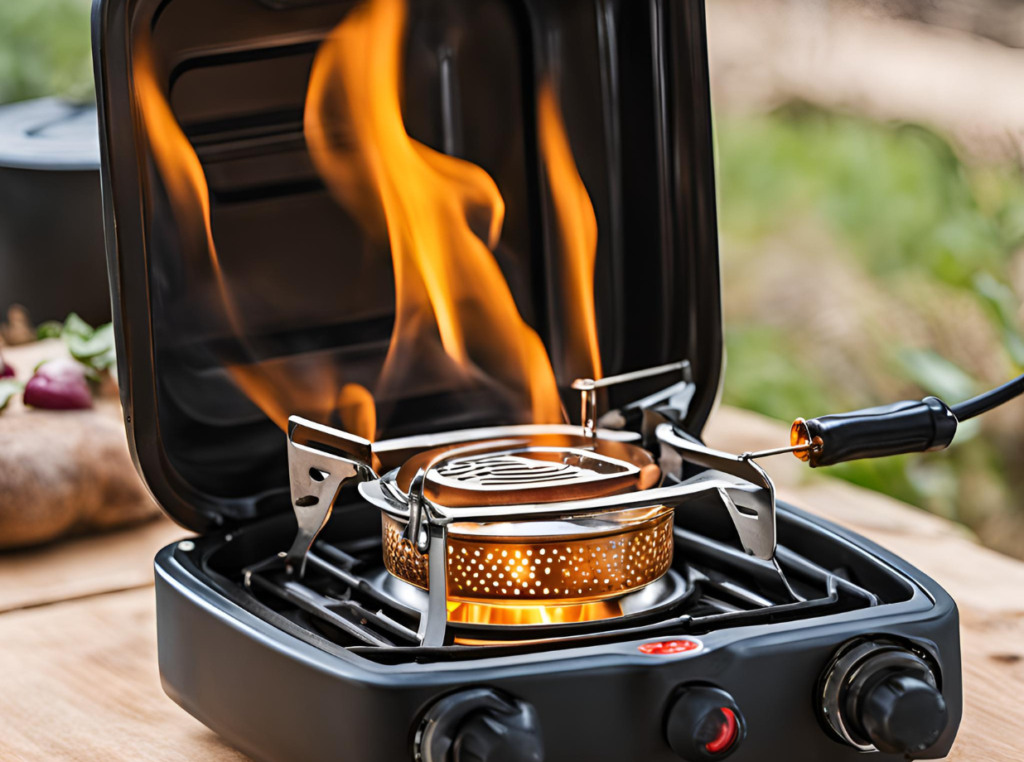Have you ever found yourself imagining which emergency stove would come to the rescue when the unexpected happens? Whether it’s a camping trip turning into a survival quest or a home suddenly without power, choosing the right emergency stove can be a decision worthy of a love story. This article promises to arm you with all the compelling details so you can confidently find your perfect match among butane, propane, and alcohol stoves.

The Charm of Butane Stoves
Performance and Efficiency
Butane stoves are often the darling of many outdoor enthusiasts because of their ease of use and solid performance. At their core, these stoves burn butane fuel, which is known for being highly efficient. Butane canisters are lightweight and provide a clean, hot flame that’s great for boiling water quickly or cooking meals to perfection.
Ease of Use
One of the most endearing qualities of butane stoves is how user-friendly they are. There’s a certain simplicity in attaching the canister, turning a knob, and getting an instant flame. This makes them especially suitable for beginners or for situations where time is of the essence—such as emergency scenarios.
Convenience
Butane canisters are easily replaceable and generally come in a compact form, making them a favorite among backpackers. Imagine opening your pack and finding a neat little butane canister that’s ready to snap into place. The convenience factor is certainly appealing.
Drawbacks
Of course, the object of your affection is not without flaws. Butane stoves can struggle in cold temperatures. Butane’s boiling point is around 31°F (-0.5°C), so if temperatures dip below that, you might see a drop in stove performance. Additionally, butane canisters might not be available in all areas—something worth considering depending on where you plan to use your stove.
The Reliable Partner: Propane Stoves
Performance and Efficiency
Propane is like the strong, dependable partner in our love story. Known for its high energy content, a propane stove can offer higher BTU output compared to its butane counterpart. This means faster cooking times and the ability to handle larger meals or more cooking tasks simultaneously.
Versatility and Availability
Propane stoves boast a wide range of applications, from camping trips to emergency home use. What makes propane especially appealing is its widespread availability. You’re more likely to find propane canisters or tanks in both urban and rural settings, which makes it the trusty go-to option in many emergencies.
Temperature Performance
Unlike butane, propane performs well even in colder temperatures. This characteristic is key for those who might find themselves in a snow-covered emergency or high-altitude scenario. Propane’s consistent performance makes it a safer bet when unpredictable weather conditions come into play.
Drawbacks
While propane stoves hold a lot of appeal, there are a few quirks to keep in mind. Propane canisters tend to be heavier and bulkier compared to butane canisters. For those looking to minimize weight and space, this could be a disadvantage. Also, while propane itself is less expensive, the cost of the stoves and canisters may add up over time.https://www.youtube.com/embed/c9r-VtJZmkY
The Free Spirit: Alcohol Stoves
Simplicity and Availability
Alcohol stoves take a different approach to emergency cooking. Often improvisational in nature, these stoves can be made from simple household items like soda cans. They burn denatured alcohol or ethanol, both of which are relatively easy to find, even in emergencies. Their simplicity has a certain charm that attracts those who revel in the minimalist experience.
Weight and Portability
One of the biggest draws of alcohol stoves is their featherweight and compact design. For the ultralight backpacker or emergency kit preparer, the notion of a stove that weighs next to nothing is incredibly enticing. They also pack down to practically nothing, freeing up valuable space.
Safety and Ease of Use
Alcohol stoves are generally safer to use—both in terms of the fuel and the stove itself. The fuel isn’t under pressure, reducing the risk of accidental explosions. However, it’s worth noting that the flame can be difficult to see in bright light, which means you’ll need to exercise a bit of caution.
Drawbacks
In the spirit of transparency, it’s important to highlight the downsides too. Alcohol stoves are not as efficient as butane or propane stoves. They take longer to bring water to a boil, and in colder temperatures, their performance can diminish. Additionally, you may need to carry a fair amount of fuel to cover longer trips or extended emergency scenarios.
Comparing the Contenders: A Quick Reference Table
Here’s a quick table to sum up the qualities of each stove, providing a clear snapshot for easier comparison.
| Feature | Butane Stove | Propane Stove | Alcohol Stove |
|---|---|---|---|
| Performance | Efficient, quick boiling | High BTU output, reliable | Moderate, slower cooking |
| Ease of Use | Very user-friendly | Fairly easy, slightly bulkier | Simple, lightweight |
| Temperature Performance | Struggles in cold temperatures | Performs well in cold temperatures | Less efficient in cold conditions |
| Portability | Lightweight and compact | Heavier, bulkier | Extremely lightweight and compact |
| Safety | Generally safe, but under pressure | Safe, under pressure | Very safe, no pressure |
| Fuel Availability | Moderately available | Widely available | Easily available |
| Cost Efficiency | Moderate | Relatively inexpensive | Very inexpensive |

What’s Your Use Case?
Choosing your stove should closely align with how and where you intend to use it. Are you a fair-weather camper who seldom ventures out in the cold? Do you need a reliable backup for power outages at home, or is ultralight backpacking more your style? Ask yourself these questions to narrow down your choice.
For the Prepared Homeowner
If you’re stocking up for home emergencies such as power outages, propane could be your soulmate. Its versatility, high-energy output, and reliable performance under various conditions make it a strong candidate. Coupled with the ease of finding propane tanks in multiple sizes, you can scale up or down based on your needs.
For the Weekend Warrior
For the casual camper who looks for fuss-free but effective cooking solutions, butane might just be the one. The simplicity and efficiency of butane stoves mean you can spend more time enjoying your surroundings and less time fiddling with your cooking setup.
For the Ultralight Adventurer
Alcohol stoves cater to those who live by the ethos of minimalism. If shedding weight and maximizing pack space is crucial, these little stoves are your ideal match. While they come with some trade-offs in efficiency and performance, their super lightweight design and ease of fuel accessibility make them a lovely option.
In-Depth Considerations
Before you make a commitment, there are some deeper aspects worth exploring about each stove type. A thorough understanding can cement your choice even further.
Environmental Impact
When it comes to emergency preparedness, it’s easy to overlook the environmental footprint of your choices. But sustainability matters.
- Butane: Butane canisters are usually single-use, and while recycling options are available, they aren’t always convenient or accessible.
- Propane: Propane tanks, particularly the larger ones, can often be refilled, reducing waste. Smaller canisters, being disposable, may pose similar environmental concerns as butane.
- Alcohol: Using denatured alcohol or ethanol can be considered more environmentally friendly. These fuels can be made from renewable resources, making them a significant point for the sustainably-minded.
Storage and Shelf Life
How long will your fuel last in storage and how should you store it safely?
- Butane and Propane: Both have indefinite shelf lives if stored properly. They should be kept in cool, dry places away from direct sunlight and heat sources.
- Alcohol: Denatured alcohol also stores well, though it’s essential to keep it tightly sealed to prevent evaporation.
Maintenance
The longevity and ease of maintenance for each emergency stove vary.
- Butane and Propane Stoves: They generally require minimal maintenance beyond regular cleaning and ensuring the fuel ports stay clear.
- Alcohol Stoves: These stoves are usually straightforward to maintain. Even homemade versions can be easily cleaned and repaired or replaced as needed.

Real-World Testimonials
Stories from people who have been in real-life emergencies can often provide the most valuable insights. Let’s hear some snippets of their experiences:
Jason’s Frozen Campsite
Jason once found himself on a winter camping trip when a sudden snowstorm hit. Armed with a propane stove, he managed to cook hot meals and even melt snow for drinking water. The steady performance of the propane stove in sub-zero temperatures was a lifesaver for him and his friends.
Maria’s Motor Home Adventure
Maria, an avid traveler, relies on a butane stove in her motor home. She loves how quickly it heats her meals without taking up much space. Despite one chilly night causing a slight hiccup in performance, Maria remains loyal to her butane stove for its consistent convenience.
Sophie’s Remote Hike
Sophie is an ultralight backpacker who swears by her alcohol stove. On a multi-day trek through the Rockies, she appreciated how her stove added negligible weight to her pack. Although it took a bit longer to cook, the ease of acquiring fuel—even in small towns—made her journey smoother.
Final Thoughts: Choosing Your Stove Companion

Just like any good love story, the perfect match often comes down to a mix of compatibility, circumstances, and personal values. Comparing butane, propane, and alcohol stoves reveals each as a strong contender with its own set of charms and quirks. By understanding their unique advantages and drawbacks, you can make an informed choice that ensures your next emergency is met with confidence and a warm meal.
This isn’t merely about picking a stove; it’s about finding a reliable partner in times of need. So spend some time with each option, weigh their virtues, and you’ll be prepared for whatever unexpected adventure life throws your way.



